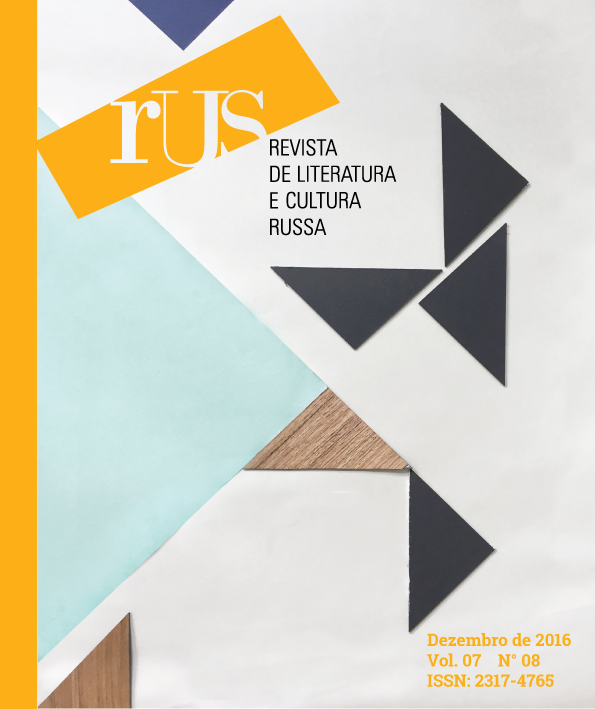Stanislávski: um iluminista no coração de outubro
DOI:
https://doi.org/10.11606/issn.2317-4765.rus.2016.122886Keywords:
Stanislavski, Russian Theatre, Russian Culture, October RevolutionAbstract
Konstantin Sergueievitch Stanislavski (1863 – 1938) is often considers the most important theatre director of the 20th century, both in Russia and the world. Born in Moscow only two years after the abolishment of the serfs (in 1861), Stanislavski became, as the 20th century went on, the inspiring model of all Russian performing arts, having his System been elected as the standard education procedure for actors’ training in the USSR. Son of one of the wealthiest families within the Russian Empire, Stanislavski dedicates his life to theatre-craft and, paradoxically, ends his life as the most respected theatre man in a country self-labeled as a “proletarian dictatorship”. Considering his long and fruitful life in art, as well as the actual importance of his research to contemporary de-velopment in theatre, this article seeks to inquire on his direct relationship with the first years of the October Revolution (1917 – 1920), in order to try and partially understand Stanislavski’s recognition process by the Soviet Power, despite his bourgeois origins.Downloads
Downloads
Published
Issue
Section
License
Authors who publish in RUS agree to the following terms:
a. Authors retain copyright and grant the journal right of first publication with the work simultaneously licensed under a Creative Commons Attribution 4.0 International License (CC BY-NC-SA 4.0) that allows others to share the work with an acknowledgement of the work’s authorship and initial publication in this journal.
b. Authors are able to enter into separate, additional contractual arrangements for the non-exclusive distribution of the journal’s published version of the work (e.g., post it to an institutional repository or publish it in a book), with an acknowledgement of its initial publication in this journal.
c. Authors are permitted and encouraged to post their work online (e.g., in institutional repositories or on their website) prior to and during the submission process, as it can lead to productive exchanges, as well as earlier and greater citation of published work (See The Effect of Open Access).





